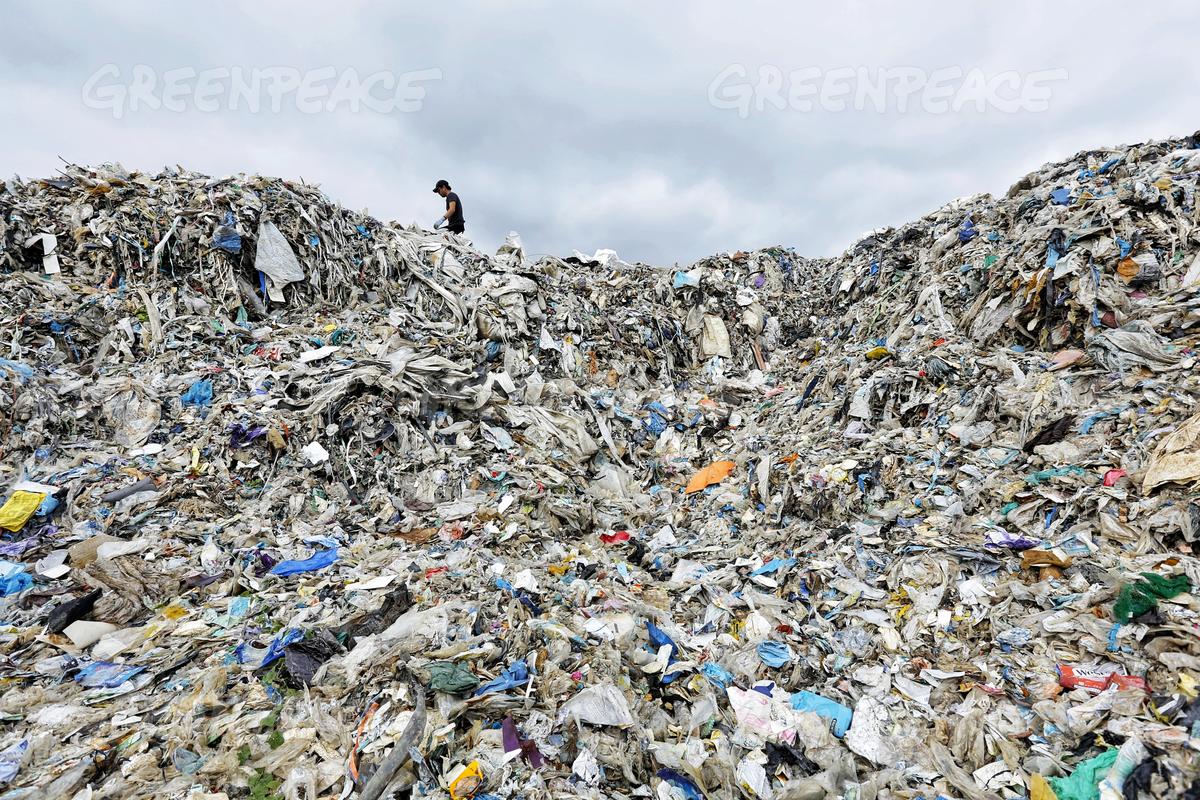
On any given week, I could start this piece with a new worrying story or study about the pervasive nature of plastic pollution in our living world. There was the whale found with over 100 plastic drinking cups in its stomach, or the discovery that tiny flecks of plastic have been found in carcasses of every species of turtle.
Plastic pollution is a global problem but not a distant one. Greenpeace’s investigative journalism project, Unearthed, recently found plastic packaging from everyday British products in an illegal dump in Malaysia. Two thirds of the UK’s plastic waste is exported because we’re producing far too much plastic in the first place. Then trying to sweep it under somebody else’s carpet.
Just consider, seven UK supermarkets churn out 59 billion pieces of plastic packaging a year. So if we’re going to tackle the plastic pollution problem, there’s no doubt these retail giants are going to have to change how they package their broccoli – and much more. Greenpeace’s End Ocean Plastics campaign is calling on UK supermarkets to set ambitious yearly reduction targets for single-use plastic packaging, and to pull out all the stops to eliminate unnecessary and non-recyclable plastic by the end of 2019. Our oceans can’t wait and shoppers have had enough, but so far supermarkets have largely responded with a pick-and-mix assortment of pledges and promises.
To cut through the confusion, Greenpeace and the Environmental Investigation Agency have just released a report that gives the full picture – for the first time – of supermarkets’ contribution to our plastic waste problem, what they are actually doing about it, and whether it’s enough. We ranked the top ten supermarkets to show how they compare.
We found that supermarkets aren’t stepping up to the plate when it comes to reducing overall plastic use, and are not moving fast enough to remove unnecessary and non-recyclable plastic – like black plastic trays or PVC – either. And despite their colossal plastic footprints, half of the top ten supermarkets surveyed have no specific targets to reduce plastic packaging and most of those who do are moving at such a slow pace that it would take 20 years to completely rid their shelves of throwaway plastic.
We’re only at the start of fixing this enormous problem. Now supermarkets must draw up coherent and bold strategies to reduce their plastic footprints and embrace the challenge to shift away from packaging designed to be used once then discarded, towards reusable, refillable and truly sustainable alternatives. Supermarket strategies also need to ensure that food waste and climate emissions are reduced. A recent report from Friends of the Earth Europe and Zero Waste Europe found that both food waste and plastic packaging have increased year on year.
Here’s a few things you can do to add your voice to calls to supermarkets to reduce their plastic footprint. You may fancy taking part in our festive #PointlessPlastic activity. When you spot frustratingly over-packaged festive items during your weekly food shop, take a photo and post it on Twitter using #PointlessPlastic and don’t forget to tag the supermarket. We’ll share the best (worst!) examples and you can cast a vote for the most outrageous one. And if you’ve had enough of the amount of plastic that comes home with your supermarket shopping all year round, you could sign our petition and be the first to hear what we’ve got in store for supermarkets in 2019.












We are discussing Riverford today on waterwavesradio.net
Love Wicked Leeks